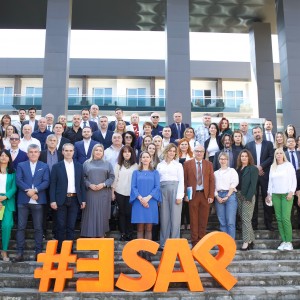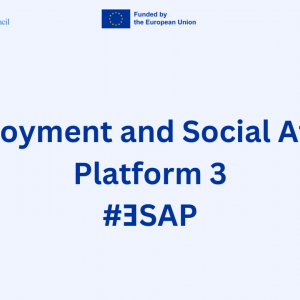RCC ESAP 2: Labour Inspectors from Western Balkans, including Tax Authorities from some economies, visited Norwegian Labour Inspectorate and Social Partners, exchanging experiences and practices on tackling informal employment



RCC ESAP 2 organized a thematic Study Visit to Norway within its Mutual Assistance Projects focused on Tackling Undeclared Work in the Western Balkans
Oslo – Twenty members of the Western Balkans’s (WB) Network Tackling Undeclared Work from Labour and Tax Inspectorates from the region’s economies visited Norwegian Labour Inspectorate in a thematic Study Visit focused on tackling undeclared work, organized by the Regional Cooperation Council’s (RCC) Employment and Social Affairs Platform 2 (ESAP 2) project in partnership the Norwegian Labour Inspection Authority on 27-28 April 2022.
“It was a real pleasure to meet with peers from the Western Balkans here in Norway and I’m amazed with comments, questions and interest in our practices shown during the visit. This has been valuable experience for all, as sharing ideas between economies, agencies and social partners is very important”, said Pal H. Lund on behalf of the hosting Labour Inspection Authority in Norway praising the past work of the WB regional network for tackling undeclared work and underlining the need to keep it operational as a good platform for exchange of views, practices and experiences, necessary for tackling undeclared work.
During the first day of the Study Visit the participants from the region visited offices of the Norwegian Labour Inspection (LI) Authority where they heard comprehensive presentations on labour inspections in Norway, organizational structure, models of inspections and supervision, work of inspectors, their competences, field visits, mechanisms related to research and data analyses, cooperation with other agencies (Tax Authorities, Police, Social Services), practical cases of inspections, reporting, public awareness campaigns on rights of workers, and many other topics and questions raised by the WB inspectors. Special attention was devoted to risk assessment and detection of undeclared work by the LI, follow up controls, and preventative measures, and also penalty options exercised by the Norwegian LI.
The joint conclusion of the Western Balkans Inspectors (both Labour and Tax) was that although there were significant functional differences between the Norwegian and WB models of LIs, there are several good practices that can be adjusted and adapted to the specific WB-economy context and the work of inspectors in the region.
The second day of the Study Visit was dedicated to meetings with social partners – employers’ and workers’ associations in Norway. The meetings were hosted by the Confederation of Norwegian Enterprise (NHO), the largest association of employers in the country, while presentations were held jointly with the Norwegian Confederation of Trade Unions (LO). The focus of the social partners’ presentations was on the Norwegian model of social dialogue, with special attention to vulnerable groups such as undeclared workers, their rights, and occupational safety and health measures. In addition to the NHO and LO, representatives of two additional representative organisations of employers and employees (Spekter, Employers Federation, and Union of Municipal and General Employees), presented their work, focusing more on specific industries and branch agreements/measures, contributing to safer work environment. The key takeaway from the Norwegian model of social dialogue was ‘trust and transparency’, which represent the grounds for social dialogue in Norway.
Also, as a part of the working sessions of the Study Visit, while together during the Study Visit, WB participants gathered for a fifth plenary session of the WB Network for Tackling Undeclared Work, presenting updates on their activities and those planned for the future, especially given the COVID-19 pandemic recovery process.
***
The RCC ESAP 2 project in partnership with the Norwegian Labour Inspection Authority organized the Study Visit/Working Exchange to the Norwegian Labour Inspection Authority, Norway as a part of its activities supporting the Western Balkans Network for Tackling Undeclared and the RCC ESAP 2 Mutual Assistance Projects (MAPs) implemented in 2021. This exchange has been an opportunity for WB partners to learn first-hand from the Labour Inspectorate of Norway on labour inspection practices related to tackling undeclared work and also related to some recommendations that were provided as part of the MAPs.
The MAPs are practical, hands-on, and tailored learning activities designed to transfer practices, provide advice and provide an opportunity for peer learning to Western Balkan enforcement authorities.


